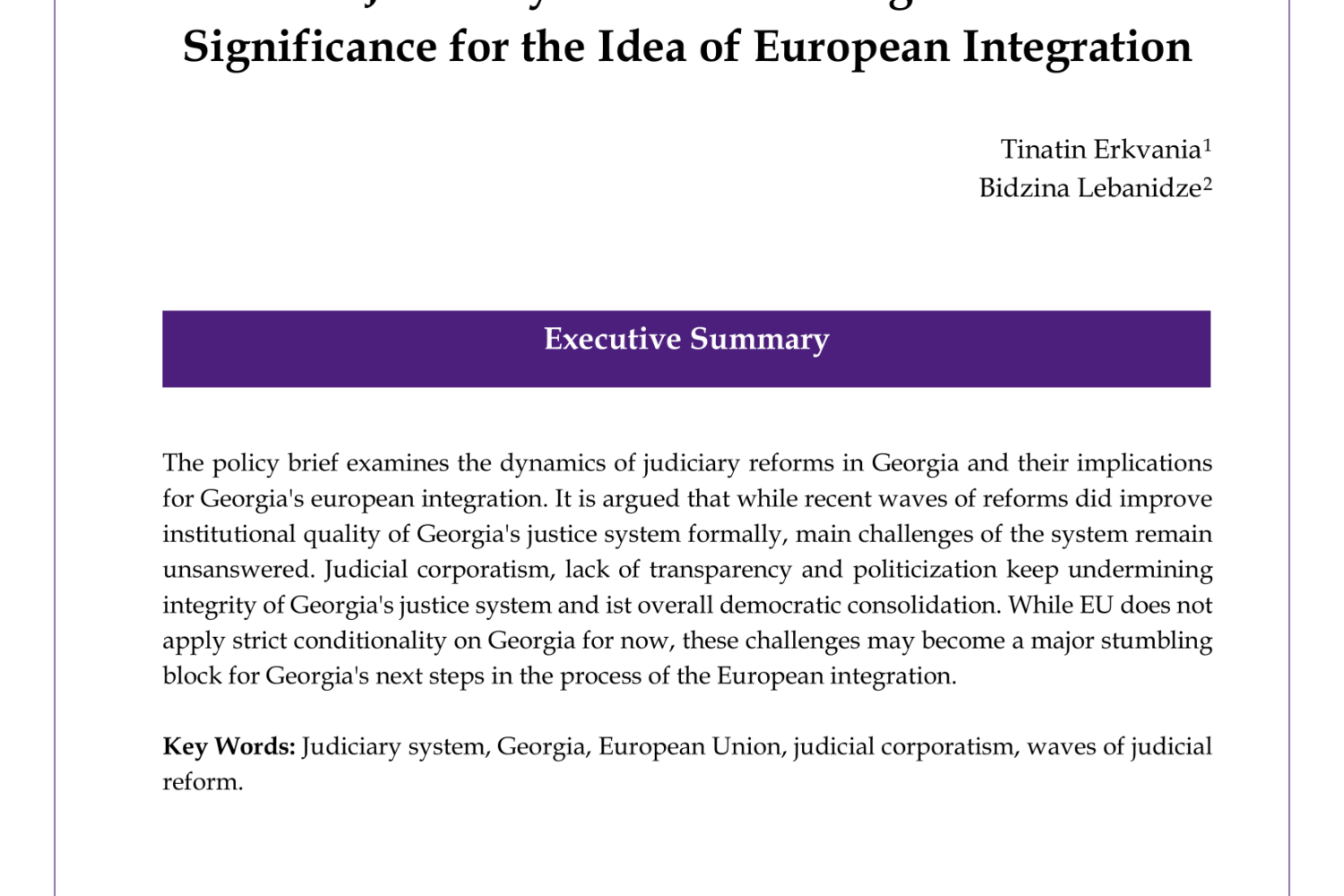The efficient functioning of the judiciary and justice system remains the Achilles’ heel of Georgia’s political system. While four recent waves of reforms have formally improved and refined the quality of the judiciary institutionally, these reforms have not influenced the efficiency and transparency of the judicial system in any practical sense. Nepotism, judicial corporatism, political bias and vulnerability to overreach and influence from the executive branch remain major challenges for the judicial system. Consequently, the waves of reforms carried out to date, to some extent, can be assessed as formally successful despite the lack of significant, all-encompassing results. Democratic consolidation and the process of building rule of law in Georgia cannot be completed without fundamental changes in the judiciary.
This document reviews the dynamics of recent judicial reforms in Georgia together with their compliance with EU requirements. At the same time, it identifies key challenges and gives recommendations to improve the efficiency of the judiciary and raise the quality of democracy.




